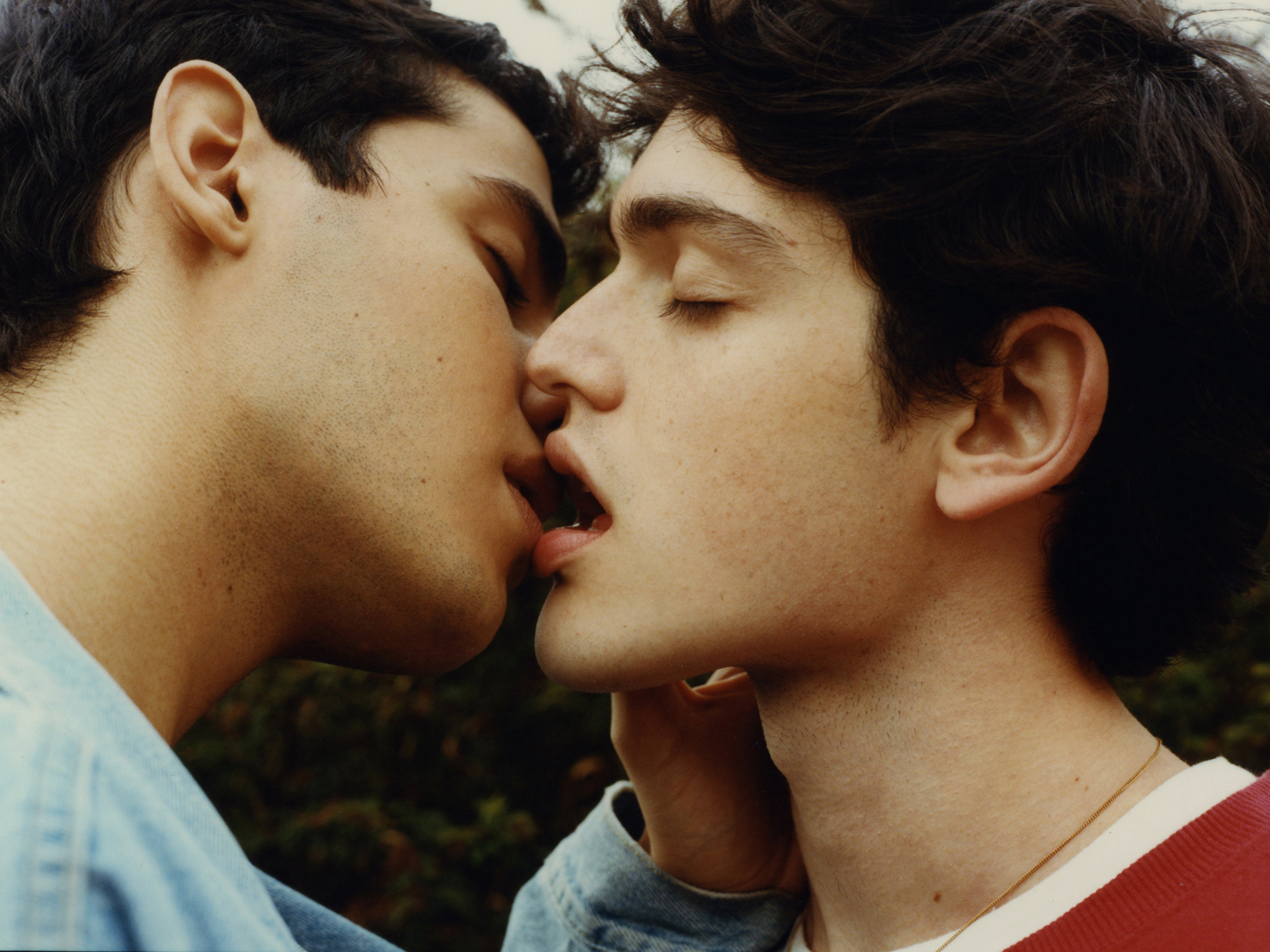Guilherme da Silva’s debut zine Overture is a thing of beauty. Shot over the last three years, the project imagines a queer utopia captured in natural spaces in São Paulo, where the photographer, who hails from a region of southern Brazil, is currently based. Guilherme started the project as a reaction to queerphobic attitudes he encountered while shooting commercial work in Brazil. Rendered across 40 dreamlike pages, the resulting zine stars a cast of LGBTQ+ friends and models the photographer met online, who he has lensed in a series of warm and sensuous portraits centred on queer desire, love and friendship.
Though most of the images were shot in a park near Guilherme’s home, the idea for the zine first came while he was halfway around the world, in Venice, when he took a particularly tender portrait of a close friend on a trip in 2019. Guilherme and his boyfriend, artist Lucas Bassetto, had broken up just hours earlier (the two are now back together), and he was feeling introspective. “I was basically trying to cope with the break-up by making art and also trying to deal with my frustrations with work in Brazil,” he says. “That picture shaped the entire thing. When I developed the photos, during the editing, I just knew I had to do something with it.” The zine also features a series of erotic illustrations by Lucas.
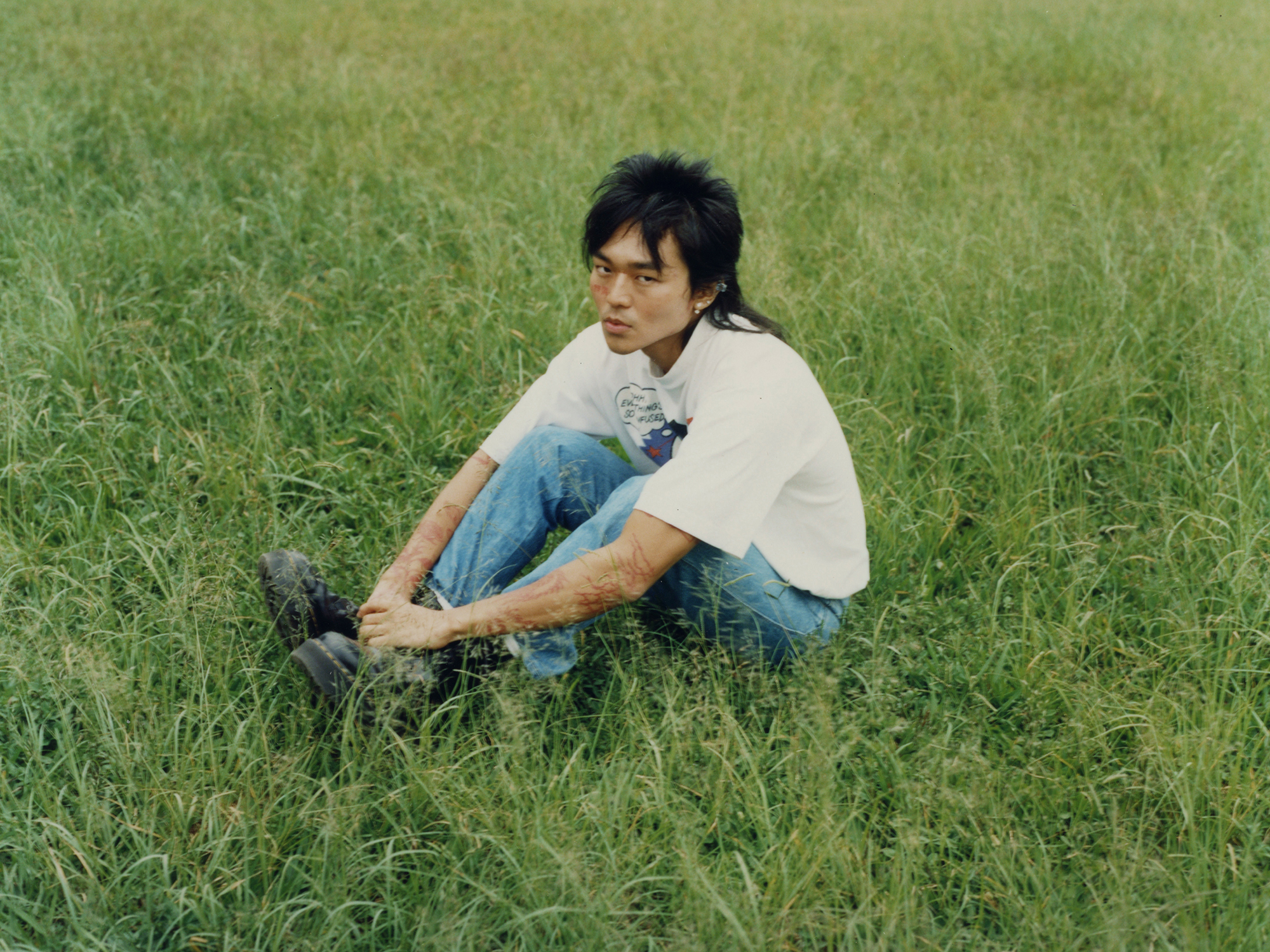
From the chance start of this first portrait and through the stop and start of lockdowns over the next two years, the zine began to take form. Guilherme took inspiration from the artistic concept of ‘arcadia’ – an Edenic paradise of simple pleasures and harmony with nature, which has been depicted in art and poetry for centuries. “Being born in a very LGBTQ-phobic place has always made me create these little safe places in my head where I could be who I wanted to be; mostly during school years, cause it was a nightmare,” Guilherme says. “Luckily, my parents have always accepted me, so my house was also one of my safe places, but it didn’t make me stop thinking about the other people who didn’t have the same privilege I did.”
Given the political atmosphere of Brazil today, this idea of an arcadian paradise felt more urgent to Guilherme than ever. “Now, with Bolsonaro being the president in Brazil, I feel that everything has gotten worse, and I’m afraid for me, my friends and everyone in our community,” he says. “I decided to create this utopia to escape from reality, to be honest.” As well as a form of escapism, the zine was also created as a reaction to queerphobic encounters Guilherme experienced while photographing work for Brazilian publications. “I stepped out of the world of editorial when I was commissioned to do a shoot with boys, but I couldn’t cast anyone who looked gay, femme or anything like that,” he says. “It was very frustrating, but then I decided to do my own publication.”
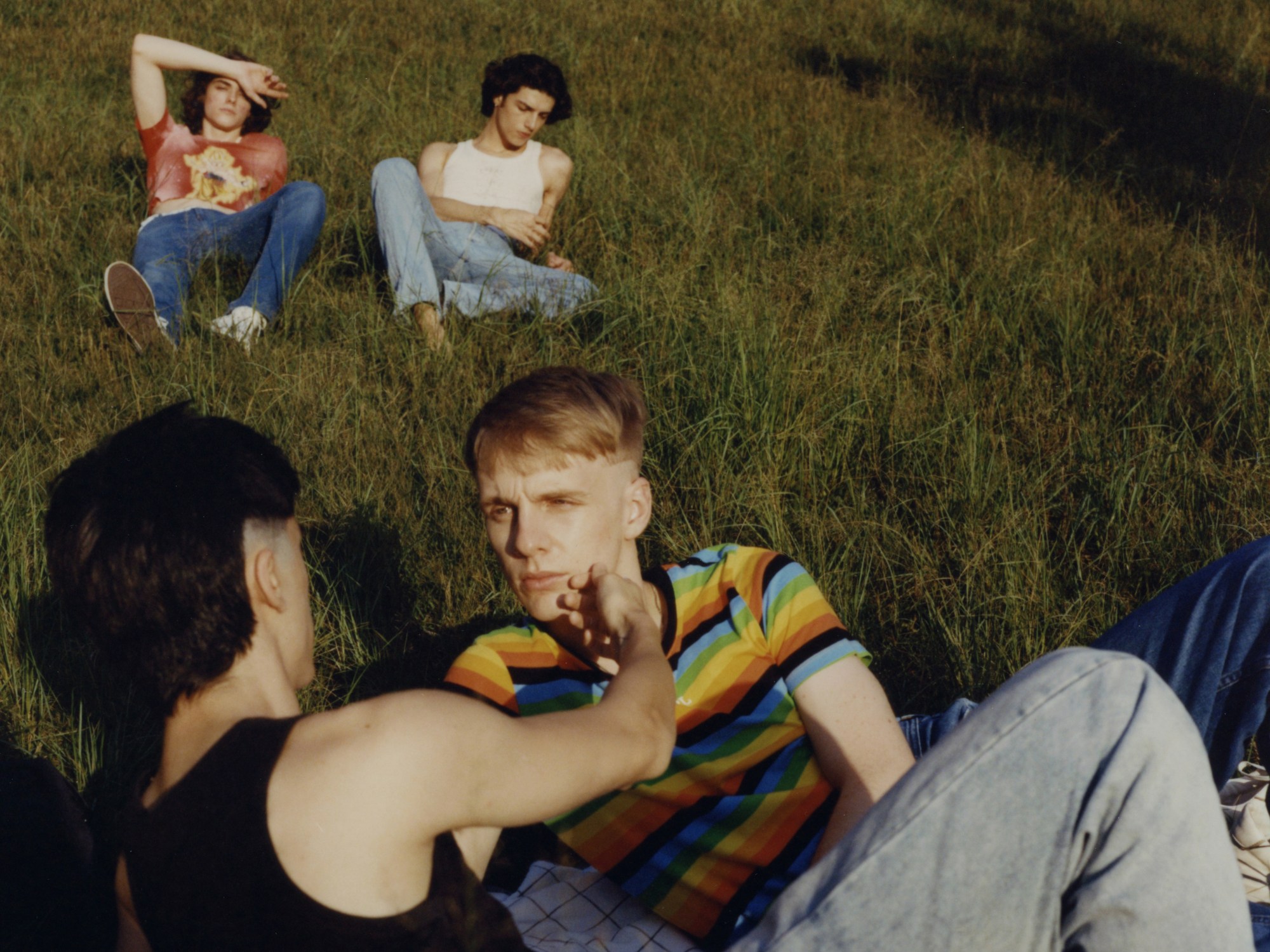
The zine also nods to the work of a few established artists, especially those who have captured escapes to nature. Guilherme channelled the hazy natural colour palette of American realist painter Thomas Eakins, as well as the carefree spirit and defiance of Justine Kurland‘s cult 90s teenage runaway series, Girl Pictures. “Justine influenced me with the political view behind her series,” he says. “I really wanted to do the gay version of that.” The series also looks to the legendary work of Nan Goldin, whose beautiful, raw and sexually-charged photos from the 80s Guilherme first saw at university. “I grew up in the southern region of Brazil, in a place which is not in Brazilian postcards. I didn’t have many references until I got to my first photography class at uni, when my teacher asked to see my work and showed me Nan’s works. I fell in love with it. Discovering Nan was a turning point for me: from that day on, I started to research a lot about photography.”
The main thing Guilherme has learned from Nan is emphasising the intimacy between photographer and subject, which is felt deeply in the zine’s gentle portraits. “Most of the [people featured] I found online, and in the end, we became friends,” he says, looking back at the project. “I met so many people during the process [of making the zine] and believe we can learn a lot about ourselves by knowing other people’s stories. It was definitely a journey of self-discovery, but also empathy, friendship and love.”
As the zine makes its way into the world, above all Guilherme hopes it relays a message of joy and belonging to other queer people who see it: “I really want LGBTQ people to feel that, if they are not accepted by their parents, or school, that we can always choose our family, build our own community, and our own safe places where we can be who we want to be.”
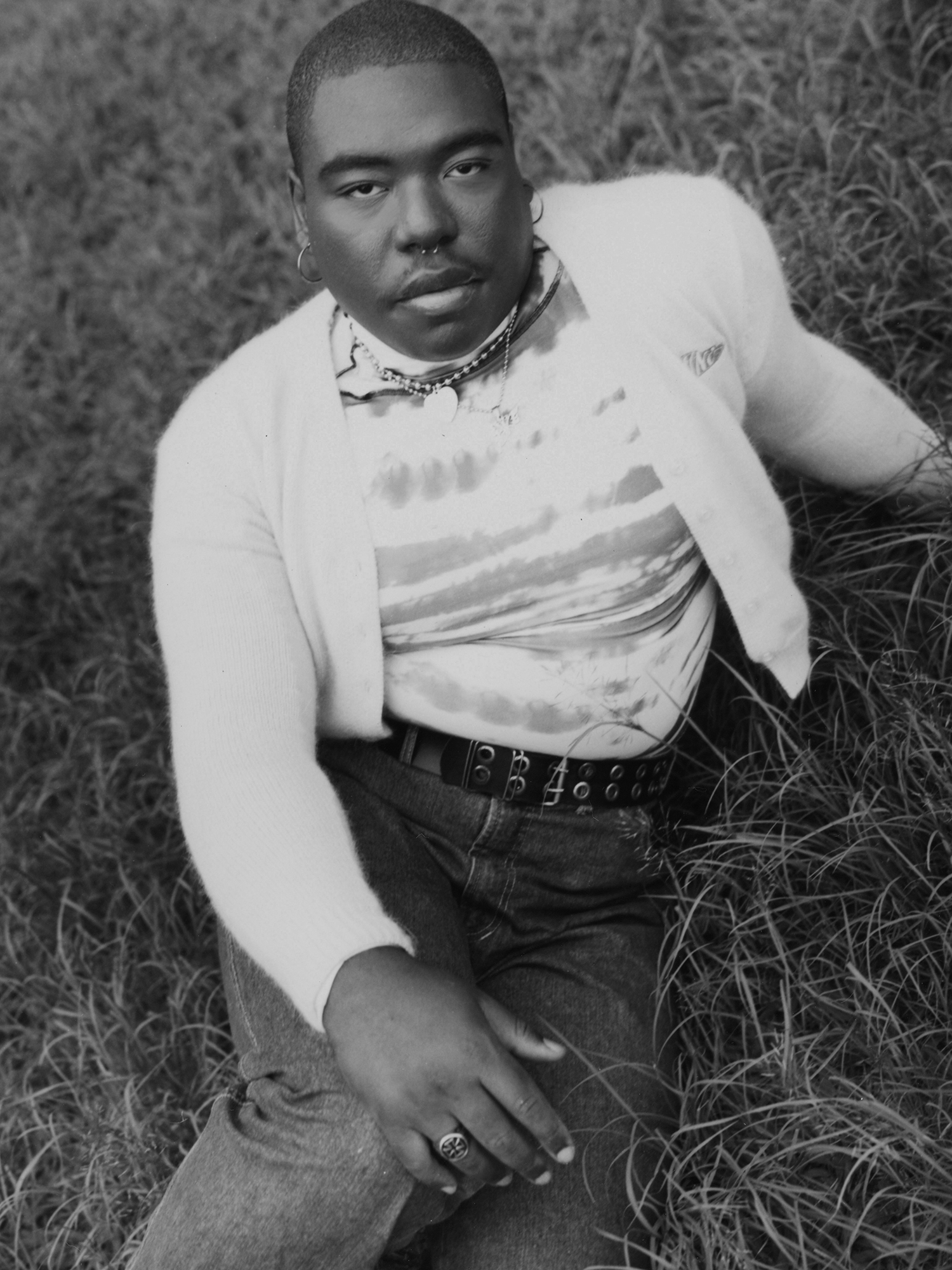
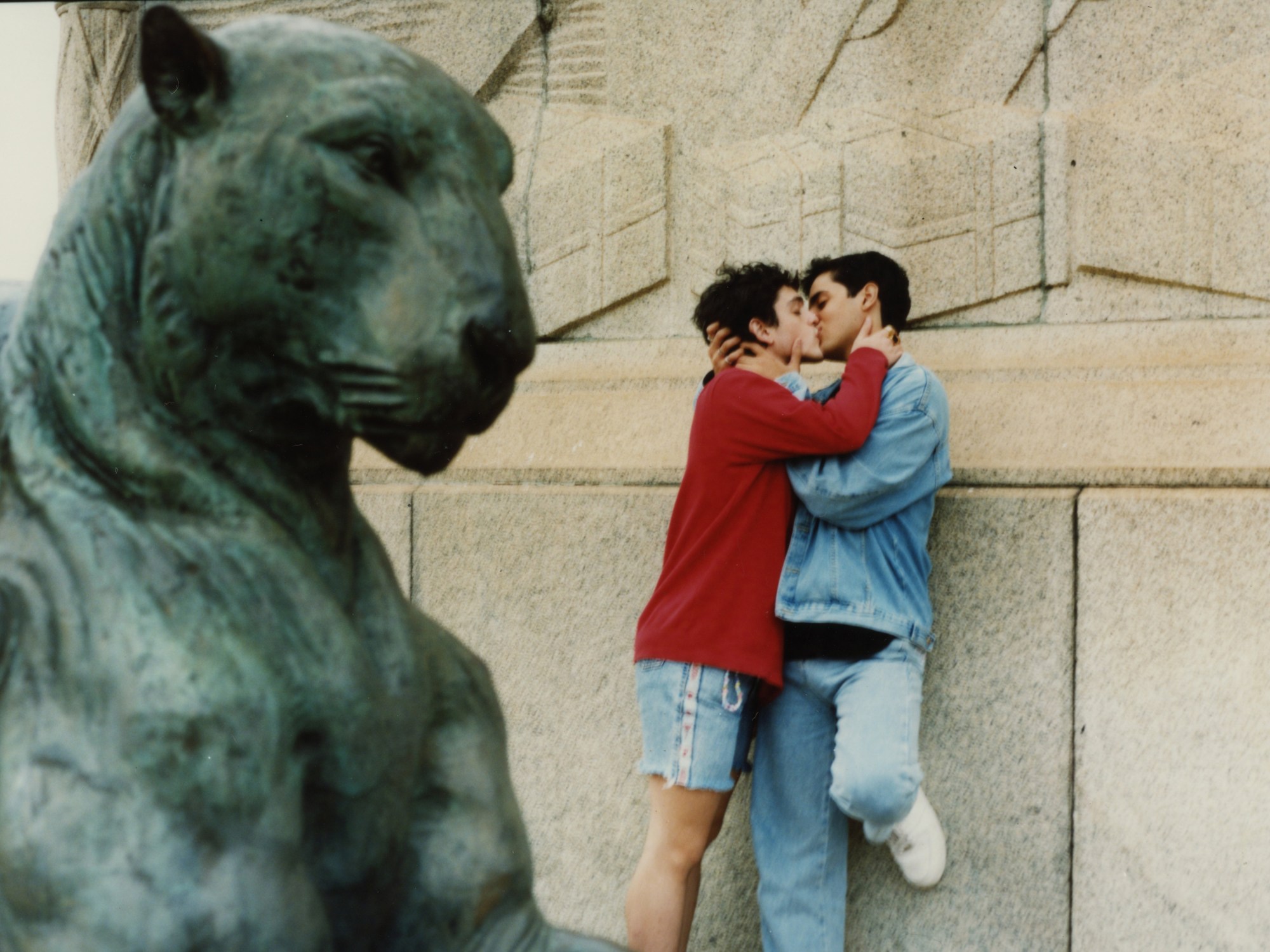
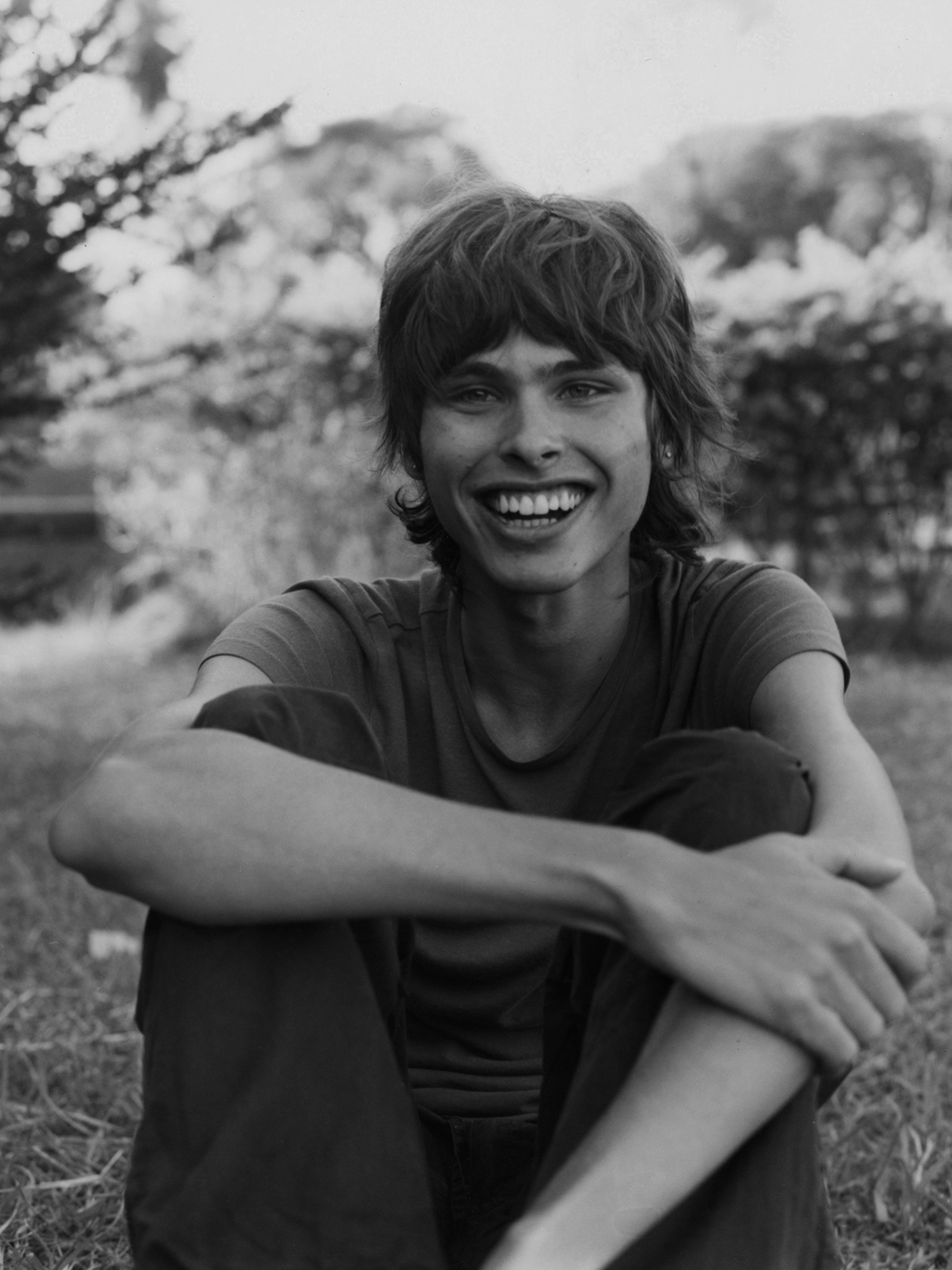
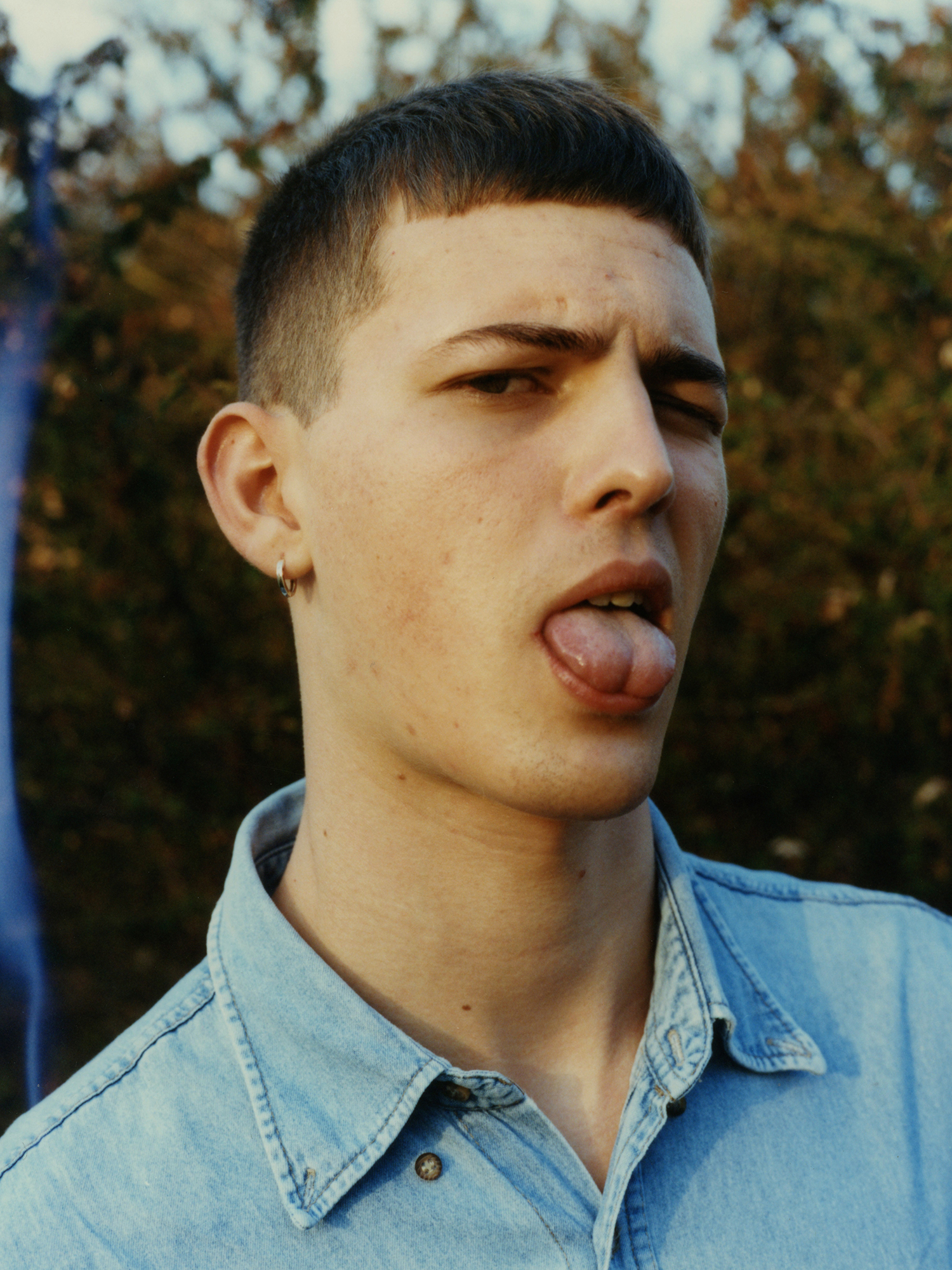
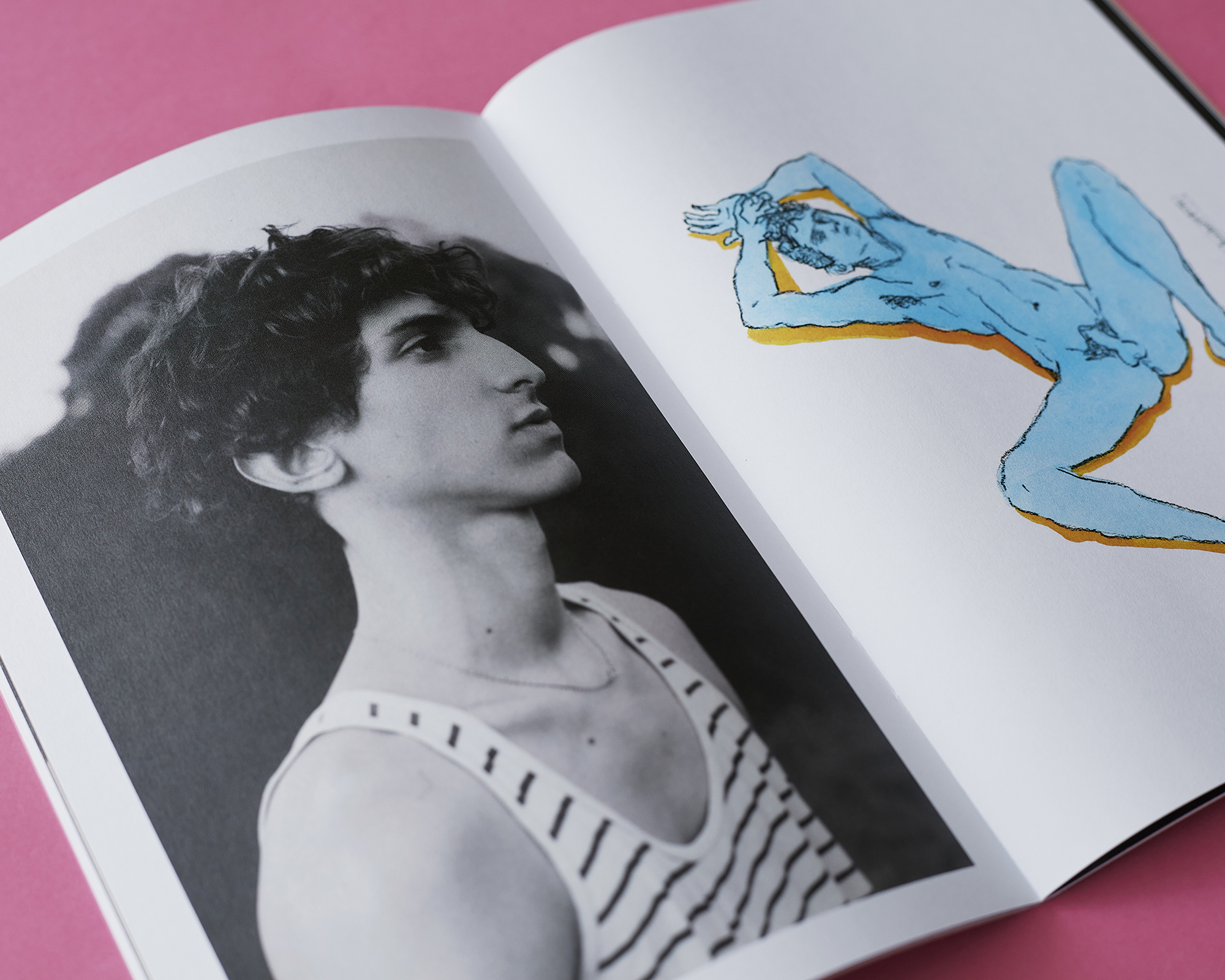
Credits
Photography Guilherme da Silva
Illustration Lucas Bassetto
Design Mateus Barros
